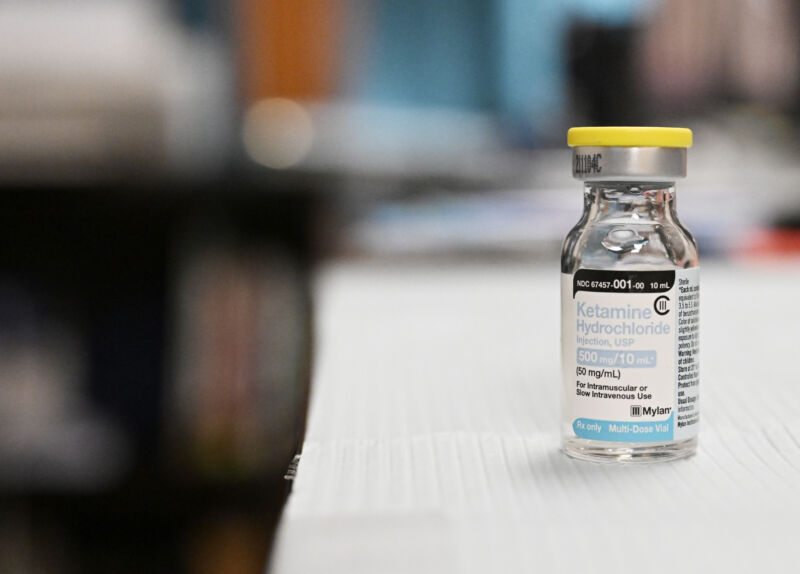Lisa Kudrow Says the ‘Friends’ Cast Only Met Together Once in the 17 Years Between Series Finale and Reunion Special



Enlarge (credit: Getty | RJ Sangosti)
After an MDMA therapy for post-traumatic stress disorder dramatically failed to impress Food and Drug Administration advisers earlier this month, researchers are moving forward with another psychedelic—a slow-release oral dose of the hallucinogenic drug ketamine—as a therapy for treatment-resistant depression.
In a mid-stage, randomized, placebo-controlled clinical trial, researchers tested slow-release ketamine pills, taken twice weekly. The trial, sponsored by New Zealand-based Douglas Pharmaceuticals, found ketamine to be safe compared with placebo. At the trial's highest dose, the treatment showed some efficacy against depression in patients who had previously tried an average of nearly five antidepressants without success, according to the results published Monday in Nature Medicine.
But the Phase II trial, which started with 231 participants, indicated that the pool of patients who may benefit from the treatment could be quite limited. The researchers behind the trial chose an unusual "enrichment" design to test the depression treatment. This was intended to thwart the high failure rates generally seen in trials for depression treatments, even in patients without treatment-resistant cases. But even after selecting patients who initially responded to ketamine, 59.5 percent of the enriched participants still dropped out of the trial before its completion, largely due to a lack of efficacy.